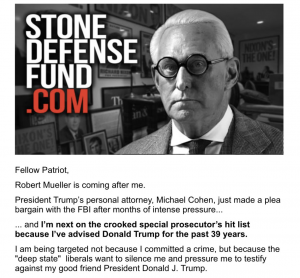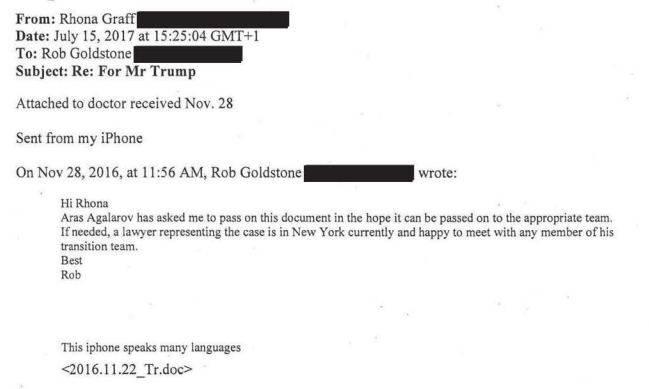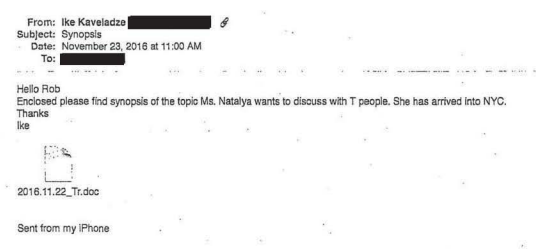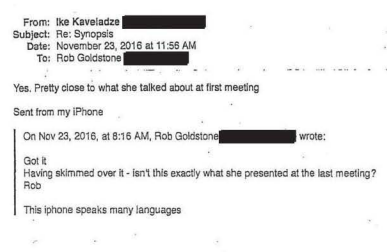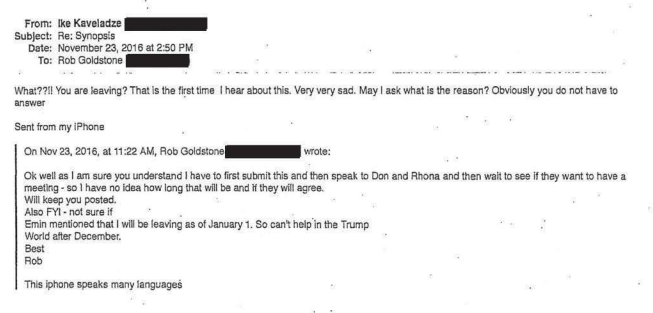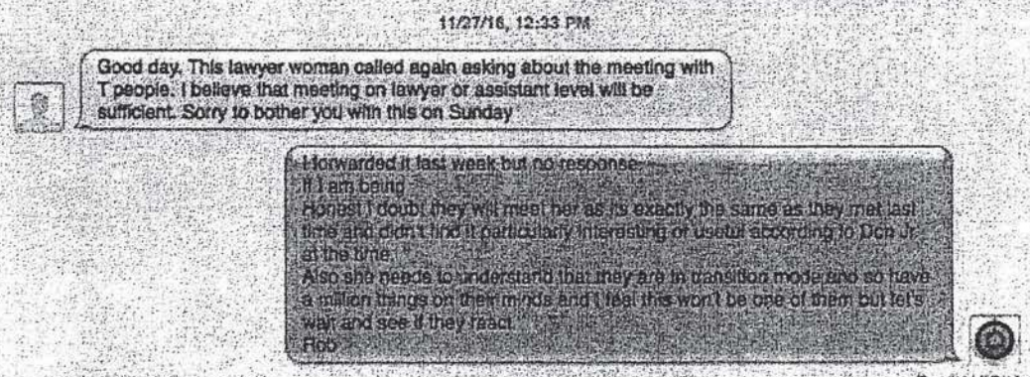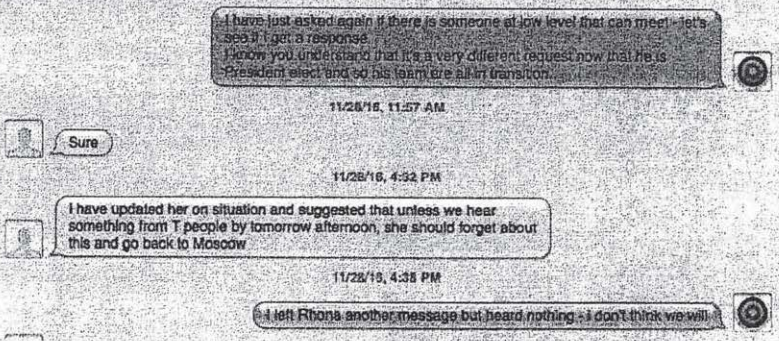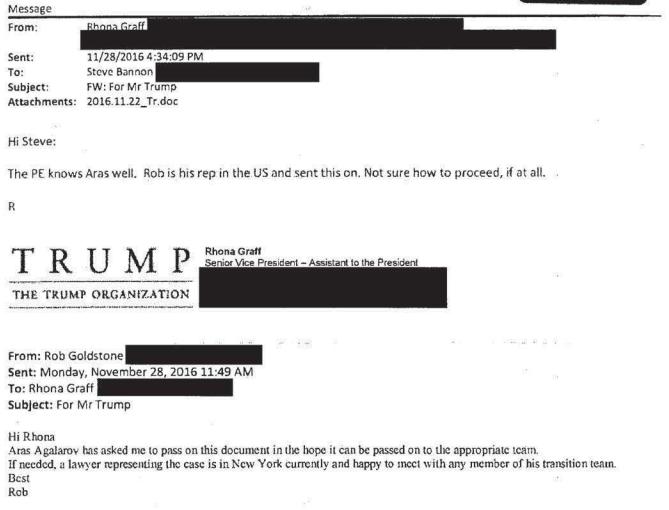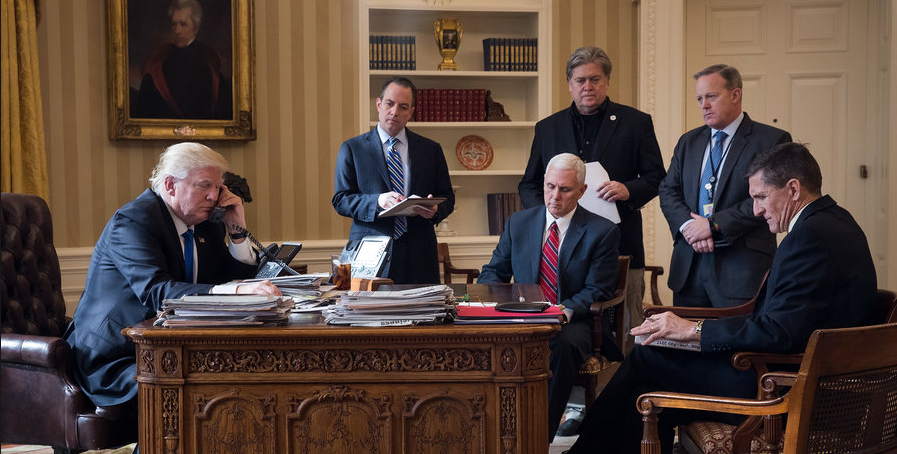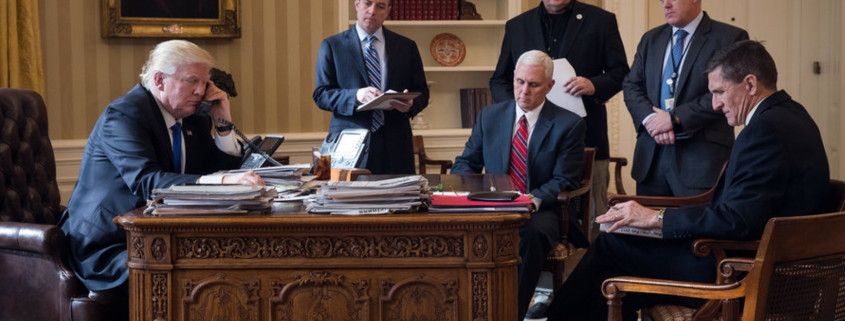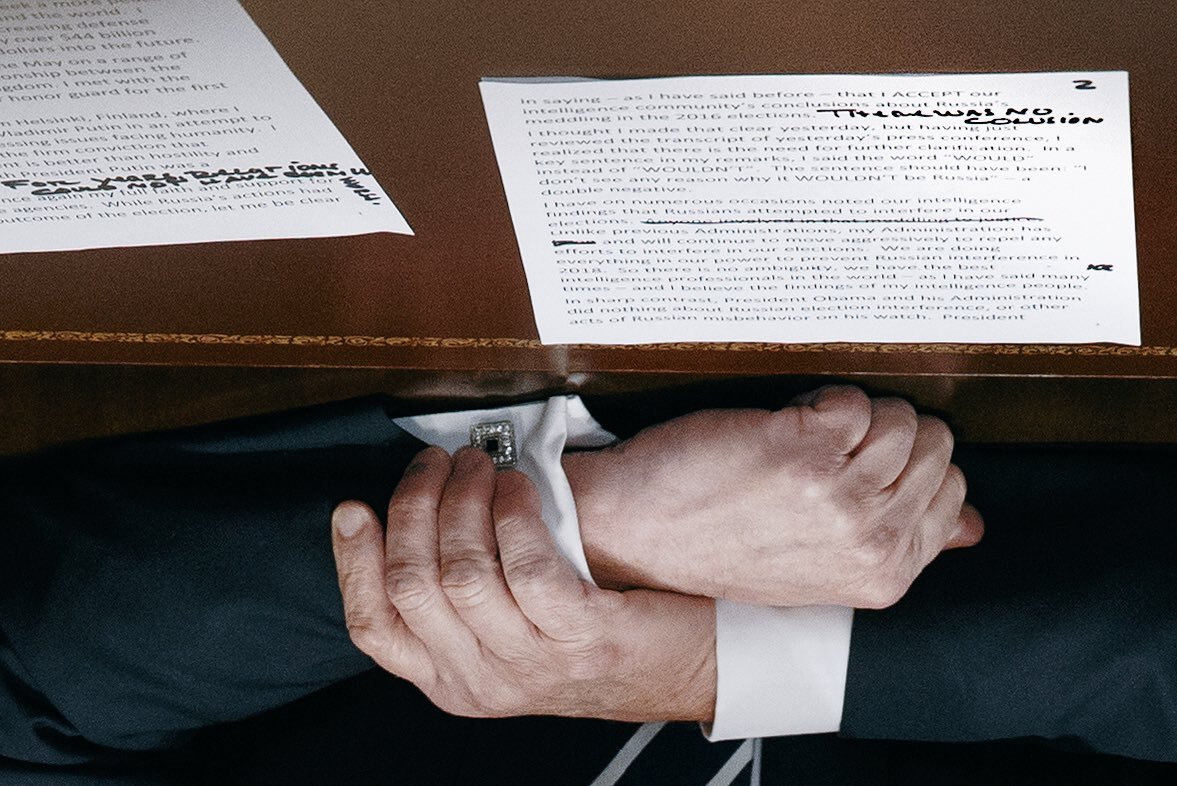Spy Versus Spy: The Two Alleged Agents of Foreign Powers Sitting in the Alexandria Jail, Part One (Paulie)
The Alexandria jail houses two alleged criminal agents of foreign influence: Paul Manafort and Mariia Butina. In the coming days, both may present interesting questions about the boundaries the US uses to define — and criminalize — foreign influence peddling. Legal questions in their prosecutions will address two questions:
- What does it take to criminalize a failure to register as an Agent of a Foreign Principal?
- What are the boundaries between Agent of Foreign Principals and Foreign Governments?
At issue are two laws: the Foreign Agents Registration Act, 22 USC 611 et seq., which requires certain people engaging in politics and propaganda for non-commercial foreign entities to register as their agents and to disclose the propaganda they disseminate. Mostly, FARA is a documentary requirement, but lying in the registration process can carry a five year sentence. That’s what Paul Manafort has been charged with. Butina has been charged with violating 18 USC 951, which basically criminalizes people who don’t register with DOJ (as, for example, diplomats would) when they spy for a foreign power; it carries a ten year sentence.
The problems with FARA … and distinguishing it from spying
As a DOJ Inspector General Audit completed in September 2016 laid out, people stopped complying with FARA in the 1990s, as any commercial lobbyists could register under the Lobbyist Disclosure Act more easily and FARA wasn’t rigorously enforced. The IG Report cited a bunch of reasons why FARA is not better enforced, such as that they aren’t staffed to be effective, nor do they have the investigative authorities DOJ thinks they need to figure out who’s not complying.
During our audit the FARA Unit was comprised of one Unit Chief, who is also an attorney; two staff attorneys; one Supervisory Program Manager; one Intelligence Research Specialist; one Program Specialist; and two Case Management Specialists.5 NSD staff emphasized that this is a limited staff, which is responsible for a considerable range of activities. The unit is responsible for processing and monitoring new and existing FARA registrations on an ongoing basis. This includes receiving, reviewing and processing documentation and payments, and addressing late or inaccurate submissions. The unit also performs periodic formal inspections to assess the adequacy of registrant reporting and disclosure, and conducts open source searches to identify individuals that may be obligated to register.
One of these two staff attorneys joined the FARA Unit during our audit. At the conclusion of our audit we were informed that the FARA Unit was back to one staff attorney, however the unit planned to hire a replacement.
[snip]
NSD officials stated that a major difficulty is a lack of authority to compel the production of information from persons who may be agents. As a result, NSD is currently pursuing civil investigative demand (CID) authority from Congress in order to enhance its ability to assess the need for potential agents to register.
Ultimately, however, DOJ almost never uses the teeth in the provision — prosecution — to ensure compliance.
Between 1966 and 2015 the Department only brought seven criminal FARA cases – one resulted in a conviction at trial for conspiracy to violate FARA and other statutes, two pleaded guilty to violating FARA, two others pleaded guilty to non-FARA charges, and the remaining two cases were dismissed. We were also told by NSD that the Department has not sought civil injunctive relief under FARA since 1991.
The IG Report cites two reasons why there aren’t more prosecutions. First, as the National Security Division explained, because it is so hard to get evidence of 1) willfulness, 2) that the agent is working under the “direction and control” of a foreign principal and 3) that the influence-peddling isn’t for some other (exempted) reason.
FARA contains a criminal penalty provision, and NSD approves criminal prosecution as an enforcement mechanism if there is sufficient admissible evidence of a willful violation of FARA, and the standards applicable to all federal criminal prosecutions set forth in the U.S. Attorney’s Manual are otherwise satisfied. The high burden of proving willfulness, difficulties in proving “direction and control” by a foreign principal, and exemptions available under the statute make criminal prosecution for FARA violations challenging. These challenges are compounded by the government’s current inability to compel the production of records from potential and current registrants, a situation NSD is working to remedy by proposing legislation for consideration by the Department of Justice (Department). Despite these challenges, the Department has brought four F ARA criminal cases since 2007, all of which resulted in convictions (one conviction at trial for conspiracy to violate F ARA and other statutes; two guilty pleas for violating FARA; and one guilty plea to related non-FARA charges).
The other reason why there aren’t more FARA prosecutions, per the IG Report, is because FBI agents confuse FARA (what Manafort is charged with) with 18 USC 951 (what Butin is charged with). Indeed, Agents mix the codes for the two crimes up in their filing system.
[W]hen we discussed FARA with FBI personnel, we found that they considered a “FARA case” to be a case investigated pursuant to either the FARA, 22 U.S.C. § 611, et seq., or 18 U.S.C. § 951 (Section 951), which is the federal statute that provides criminal penalties for certain agents of foreign governments who act in the United States without first notifying the Attorney General.12 Unlike Section 951, FARA requires agents of foreign principals engaged in legal political or quasi-political activities such as lobbying, government and public relations, tourism promotion, and foreign economic development activities in the United States to register and make detailed disclosures of their activities in the United States conducted on behalf of their foreign principals.13
By contrast, Section 951 was described to us by the NSD as “espionage lite” because a Section 951 case generally involves espionage-like or clandestine behavior or an otherwise provable connection to an intelligence service, or information gathering or procurement-type activity on behalf of a foreign government. Although FARA registration can serve as the required notification to the Attorney General under Section 951, NSD officials told us FARA and Section 951 involve different sets of elements and different types of issues. According to NSD officials, only 22 U.S.C. 611 et seq. constitutes a FARA case. Nevertheless, NSD officials acknowledged the differing views on what constitutes a FARA charge and are currently engaged in an ongoing effort to better educate field investigators and prosecutors on the difference.
12 According to NSD, notification under Section 951 may be made by registration under FARA in circumstances where the activity requiring notice is disclosed on the FARA registration form.
13 Political activities are defined by the statute as “any activity that the person engaging in believes will, or that the person intends to, in any way influence any agency or official of the Government of the United States or any section of the public within the United States with reference to formulating, adopting, or changing the domestic or foreign policies of the United States or with reference to the political or public interests, policies, or relations of a government of a foreign country or a foreign political party.”
Here’s how NSD described the difference.
Although OIG’s report reflects some criticism of aspects of NSD’s review of F ARA cases, NSD notes at the outset, as OlG acknowledged in the Report, that personnel interviewed in preparation of the Report frequently confused FARA (22 U.S.c. § 611 el seq) with 18 U.S.C. § 951 (“Section 951 “), a criminal statute entitled “Agents of foreign governments.” Although the two statutes have similar terms, they address different types of conduct. The typical conduct to which Section 951 applies consists of espionage-like behavior, information gathering, and procurement of technology, on behalf of foreign governments or officials. FARA, on the other hand, is designed to provide transparency regarding efforts by foreign principals (a term defined more broadly than foreign governments or officials) to influence the U.S. government or public through public speech, political activities, and lobbying. Accordingly, Section 95 1 is codified in Title 18 of the U.S. Code (designated for “Crimes and Criminal Procedure”), while FARA is codified in Title 22 (designated for “Foreign Relations”). Section 951 is aimed exclusively at criminally punishing individuals who violate its terms, and lacks a formal administrative registration regime. FARA in contrast, is predominantly a disclosure statute, under which there is an administrative registration regime, and while the Act authorizes criminal penalties for willful violations, the primary means of achieving FARA’s main purpose of transparency is through voluntary disclosure in compliance with the Act. The mistaken conflation of the two statutes can lead to undue weight being given to criminal prosecution as the measure of F ARA enforcement and insufficient recognition of the significance of administrative enforcement efforts relating to the FARA registration regime. It is therefore essential to understand the distinctions between FARA and Section 951 for purposes of this audit, the scope of which is expressly limited to the enforcement and administration of FARA.
Mueller’s two FARA pleas
Mueller actually already shifted the balance on FARA enforcement since that 2016 IG Report. Among the false statements Flynn pled guilty to is filing a false FARA filing.
On March 7, 2017, FLYNN filed multiple documents with the Department of Justice pursuant to the Foreign Agents Registration Act (“FARA”) pertaining to a project performed by him and his company, the Flynn Intel Group, Inc. (“FIG”), for the principal benefit of the Republic of Turkey (“Turkey project”). In the FARA filings, FLYNN made materially false statements and omissions, including by falsely stating that (a) FIG did not know whether or the extent to which the Republic of Turkey was involved in the Turkey project, (b) the Turkey project was focused on improving U.S. business organizations’ confidence regarding doing business in Turkey, and (c) an op-ed by FLYNN published in The Hill on November 8, 2016, was written at his own initiative; and by omitting that officials from the Republic of Turkey provided supervision and direction over the Turkey project.
And one of two conspiracy schemes (what I call ConFraudUS) to which Gates pled guilty is violating FARA.
GATES understood that it was illegal to engage in certain activities in the United States as an agent of a foreign pricipal without registering with the United States Government. Specifically, a person who engages in lobbying or public relations work in the United States (hereafter collectively referred to as lobbying) for a foreign principal such as the Government of Ukraine or the Party of Regions is required to register. Manafort, together with GATES’ assistance, engaged in a scheme to avoid this registration requirement for DMI, Manafort, and others.
These efforts — and Manafort’s prosecution — have already led to a significant increase in how many people are registering as foreign influence peddlers.
You can lose your profits if you don’t register
Particularly because Manafort’s case is so high profile, Mueller’s bid to prosecute him for FARA violations comes with high stakes and potentially high payoff — though DC District interpretations of the law. That said, the government has actually backstopped itself by charging Manafort’s sleazy influence peddling under multiple different crimes; the indictment actually uses seven different counts to hold Manafort accountable for hiding that he was an agent of a Russian-backed Ukrainian party, the Party of Regions (and its successor).
- ConFraudUs: Claiming Manafort prevented DOJ and Treasury from tracking his foreign influence peddling
- Conspiracy to Launder Money: Claiming Manafort and Gates laundered the proceeds of their Ukrainian influence-peddling
- FARA Violation: Claiming Manafort hid both his own lobbying for the Party of Regions and that he paid other influence peddlers to engage in
- Submitting a False FARA Statement: Claiming Manafort submitted a claim falsely claiming he didn’t need to register as a foreign agent
- False statements: Claiming he lied in his FARA filings
- Obstruction of justice: Claiming he tampered with witnesses associated with the Hapsburg group in an attempt to get them to lie about his failure to register as a foreign agent
- Conspiracy to obstruct justice: Claiming he conspired with former GRU officer Konstantin Kilimnik to tamper with witnesses
Manafort already tried and failed to narrow the application of FARA in two ways: first, by objecting to tying money laundering to FARA (and thereby tying a forfeiture to it). Second, Manafort tried to get either the false FARA statement (count 4) or the false statements (count 5) thrown as as multiplicitous. Amy Berman Jackson ruled against him on both attempts (forfeiture, multiplicitous), though the latter order basically just punted the issue until after trial.
The former is more interesting, in any case, because in her ruling ABJ took Manafort’s bid to distinguish FARA from 18 USC 951 and instead described how similar they are.
Section 951 of Title 18 states that “[w]hoever, other than a diplomatic or consular officer or attaché, acts in the United States as an agent of a foreign government without prior notification to the Attorney General” shall be fined or imprisoned for up to ten years, or both. 18 U.S.C. § 951(a). According to defendant, this statute criminalizes acting as a foreign agent, whereas FARA is merely a “regulatory scheme for foreign agent registration” that criminalizes only the willful failure to register. Def.’s Mot. at 5, quoting United States v. McGoff, 831 F.2d 1071, 1075 (D.C. Cir. 1987).
But the reference to section 951 does not support defendant’s position, since defendant acknowledges that section 951 plainly governs acting as an agent of a foreign government, and the language of the two provisions is quite similar. See Def.’s Mot. at 4–5; compare 18 U.S.C. § 951(a) (“Whoever . . . acts in the United States as an agent of a foreign government without prior notification to the Attorney General . . . shall be fined under this title or imprisoned . . . .”) with 22 U.S.C. § 612(a) (“No person shall act as an agent of a foreign principal unless he has filed with the Attorney General a true and complete registration statement . . . .”) and id. § 618(a) (imposing criminal penalties on any person who “willfully violates any provision of this subchapter or any regulation thereunder” or “willfully makes a false statement of a material fact or willfully omits any material fact” in a FARA statement). These laws are not just about paperwork; their object is to ensure that no person acts to advance the interests of a foreign government or principal within the United States unless the public has been properly notified of his or her allegiance. So both statutes expressly prohibit “acting” as a representative of a foreign entity without submitting the required notification to the Attorney General. For these reasons, the alleged international banking transactions could “promote,” and Manafort could realize “proceeds” from, a FARA violation.3
3 Defendant argues that section 951 does not bear on the issue presented here since it requires an “additional element” that FARA does not, and applies to “activities . . . under the control of a foreign government.” Def.’s Mot. at 4–5. But FARA also applies to agents of foreign governments. 22 U.S.C. § 611(b) (defining “foreign principal” to include “the government of a foreign country”). So the difference between the two provisions is that section 951 covers a narrower subset of foreign agents.
In addition to treating sleazy influence peddlers as akin to spies (albeit less serious ones) if they hide that influence peddling, ABJ’s order means that in DC, where all the sleazy influence peddlers work, a sleazy influence peddler can forfeit the money he makes off sleazy influence peddling if he doesn’t properly register to peddle influence.
Ouch.
The crime-fraud exception in FARA registration
Which brings us to one of the reasons why FARA is so hard to prosecute: the difficulty of proving willfulness. One way Mueller is getting around that is to rely on the testimony of the lawyer Manafort used to file his delayed FARA registration.
After Manafort’s influence-peddling for Ukraine became the focus of attention in 2016, the chief of the FARA unit wrote to Manafort and asked him if maybe he should have registered. Manafort hired Melissa Laurenza. She submitted three filings on Manafort’s behalf, on November 23, 2016, February 10, 2017, and June 27, 2017, all based on the representations made by Gates and Manafort (including that they had no record of communications with Tony Podesta and Vin Webber’s firms, but that they only retained email for 30 days). In the earlier filings, Laurenza claimed Manafort’s Ukrainian consulting didn’t include any outreach to US government officials or media outlets.
Last August, Mueller asked for and obtained Chief Judge Beryl Howell’s permission to compel Laurenza to testify under the crime-fraud exception to attorney-client privilege. Based off five lies for which Mueller provided evidence, Howell authorized Mueller’s team to ask seven questions of Laurenza about preparation of the FARA filings.
Then, earlier this month, a Taint Team lawyer asked for permission to have the taint Team turn over the emails that Laurenza used to write up her FARA filings. Manafort responded by claiming, in part, that he had never even seen the entirety of the litigation before Judge Howell. The Taint Team lawyer then produced the evidence that she had provided that information to Manafort in April.
If this thing goes to trial, we’re going to see a whole slew of evidence that Manafort was working directly for Viktor Yanukovych’s party, even while he hid that fact as he had Tony Podesta and Vin Weber lobby on Yanukovych’s behalf. That will get Mueller to the “direction and control” prong of the statute. By showing the efforts to which Gates and Manafort made to lie to their lawyer when they were finally forced to submit a FARA filing, Mueller will show that Gates and Manafort twice made sure that the FARA filing lied about what they had really been doing for Yanukovych.
One question I’m left with, particularly when we compare Manafort’s actions with Butina’s (which I’ll do in my next post), is why Mueller didn’t just charge Manafort with spying for Yanukovych, rather than just lobbying for him?
Update: Sam Patten, who also worked with Konstantin Kilimnik pitching Yanukovych’s party, is pleading guilty to FARA violations this morning.
As I disclosed July, I provided information to the FBI on issues related to the Mueller investigation, so I’m going to include disclosure statements on Mueller investigation posts from here on out. I will include the disclosure whether or not the stuff I shared with the FBI pertains to the subject of the post.





